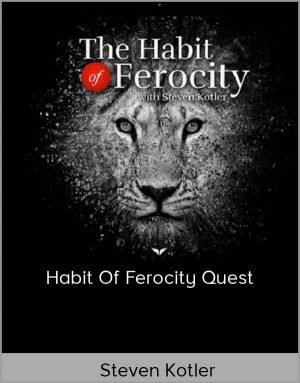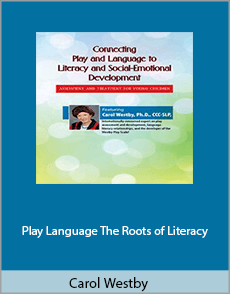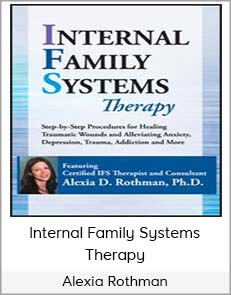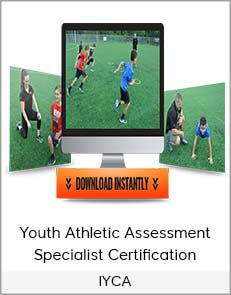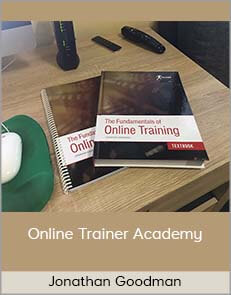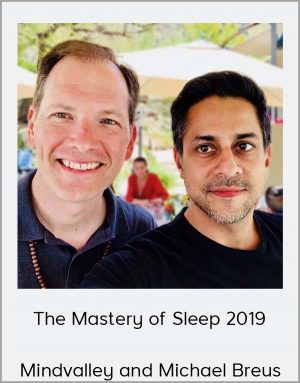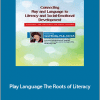Carol Westby – Play Language. The Roots of Literacy
$45.00$219.99 (-80%)
Supported by 40 years of evidence-based research and organized by developmental level, this tool will breakdown the milestones children should be achieving with their play and language.
Carol Westby – Play Language. The Roots of Literacy
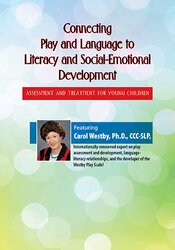
Check it out: Carol Westby – Play Language. The Roots of Literacy
Description
Watch Dr. Westby as you learn about the vital relationship between the dimensions of play, social-emotional functioning, language and literacy.
Learn firsthand how to effectively use the Westby Play Scale – a tool that offers a way to evaluate all young children’s (birth-5 years) symbolic play skills.
Supported by 40 years of evidence-based research and organized by developmental level, this tool will breakdown the milestones children should be achieving with their play and language.
You will learn play practices and play strategies to improve language, cognitive and social-emotional skills, which are essential for literacy development and academic success, including:
- Higher-level thinking, problem-solving and creativity
- Advancing language skills and text comprehension
- Awareness of temporal, cause-effect and social relationships
- Motivation, self-regulation and empathy
- Interpreting and responding appropriately to the needs, desires, and roles of others
These intervention activities will work for all young children, but special focus will be given to interventions for children with language learning disabilities, autism, socio-economic/cultural variations and ESL.
Observing children’s play provides information about their knowledge, view of the world, and mastered skills.
Handouts
Manual – Play & Language (5.29 MB) 71 Pages Available after Purchase Instructions for ASHA Credit – SELF STUDY ONLY – 11/08/19 (38.5 KB) Available after Purchase
Outline
Foundations of Cognitive-Play-Literacy Relationship: Frameworks for Assessment/Intervention
- Dynamic systems theory: integrating nature and nurture theories
- The World Health Organization’s International Classification of Functioning
- A performance competence framework for assessment and intervention
Social-Emotional/Cognitive Precursors to Play: Birth-17 months
- Neurotypical and atypical patterns of social emotional development
- Environmental influences on social emotional development and play
- Temperamental variations in children
- Presymbolic play
Development of Pretend Play Dimensions (17 months – 5 years): Relationship of Play Dimensions to Language & Literacy
- Theory of Mind Dimension (understanding thoughts & feelings of self & others)
- Decontextualization Dimension (reduced use of props in play)
- Thematic Dimension (from familiar to novel pretend themes)
- Organization Dimension (sequencing & planning of play)
Interventions to Promote Playing to Learn
- Set goals for playful learning
- Promote literate-style language through play
- Develop phonological awareness skills through playful practices
- Promote thematic pretend play to develop foundations for language and literacy
Faculty

Carol Westby, CCC-SLP, PhD, BCS-CL, ASDCS
Carol Westby, CCC-SLP, PhD, BCS-CL, ASDCS, is an internationally renowned expert on play assessment and development in children. She is the developer of the renowned Westby Symbolic Play Scale, a research-based scale used to assess children’s social and play skills. Dr. Westby has written and implemented projects to support personnel preparation, clinical service, and research, including Project PLAY (Play and Language Attunement in Young Children), that trains caregivers to increase the development of play, theory of mind, and language.
Dr. Westby is a fellow of the American-Speech-Language-Hearing Association (ASHA), is Board Certified in Child Language and Literacy Disorders, and has received the Distinguished Alumnus Award from Geneva College and the University of Iowa’s Department of Speech Pathology and Audiology, the ASHA Award for Contributions to Multicultural Affairs, the Honors of ASHA, and the Kleffner Lifetime Clinical Career Award.
Dr. Westby has published and presented nationally and internationally on topics including play, autobiographical memory, theory of mind, language-literacy relationships, narrative/expository development and facilitation, adverse childhood experiences, screen time, trauma, metacognition/executive function, and assessment and intervention with culturally/linguistically diverse populations. She has consulted with the New Mexico Preschool for the Deaf, which employs a play-based curriculum.
Dr. Westby has been a visiting professor at Flinders University in South Australia where she worked on a language/literacy curriculum, and at Brigham Young University where she consulted on SEEL, a systematic and engaging emergent literacy program that employs playful practice. She is a consultant for Bilingual Multicultural Services in Albuquerque, NM and holds an affiliated appointment in Communication Disorders at Brigham Young University in Provo, UT.
Speaker Disclosures:
Financial: Carol Westby is a consultant for Bilingual Multicultural Services. Dr. Westby receives a speaking honorarium from PESI, Inc. She is the author of numerous chapters and articles, and is published by various publishers including Jones & Bartlett and Pearson.
Non-financial: Carol Westby is the developer of the Westby Play Scale. Dr. Westby is a fellow of the American-Speech-Language-Hearing Association.

